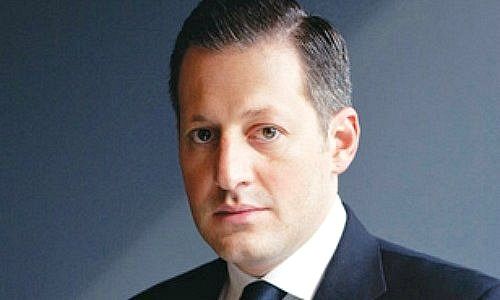How will Boris Collardi, until now a high-flying bank executive, come to grips with his new role as a Swiss «banquier privé»?
It is the Olympus for even renowned and established private bankers like Boris Collardi – to become a ‹banquier privé›, or part of a partnership which owns and operates a wealth manager.
Few finance roles are held in such high esteem as that of the truly private banker, who often was asked to vouch for the business of «his house» with his personal fortune (there have been very few female partners, and almost none who aren't scions of banking dynasties). There is no parallel in Asia to the Swiss banquier privé distinction.
The «privé» distinction isn't quite as unique as it was when the powerful Swiss banking lobby copyrighted it almost 20 years ago: the role has been watered down following legal changes at many firms after the collapse of Switzerland's oldest bank Wegelin five years ago.
In Keeping With Voltaire
That means today, private bankers are partly shielded from a financial wipeout, at least legally speaking. But like alpine mountain guides, private bankers of the traditional stripe can ill-afford to imperil their clients: privés still very much view themselves as responsible entrepreneurially for their clients' financial well-being.
As a result, the Swiss private banker still enjoy the standing that led French philosopher Voltaire to note sardonically: «If you see a Swiss banker jump out of a window, follow him—there is surely money to be made.»
Succeed and Fail Together
Cynicism aside, what values accompany partners of Swiss private banks? Certainly a long-term view, impeccable and upstanding behavior, and a willingness to serve clients and their families for several generations. In short, the partnership model includes humility, restraint, and to acknowledge that banking relationships are a two-way street: bankers and clients can only succeed, or fail, together.
Pictet's Laurent Ramsey, who has been a partner at the Genevan bank for two years, highlights the sovereignty of role: «Time is our luxury. We don't have to satisfy outside stakeholders every quarter because we are a partnership. If our profits fall, so does our share of them. This ensures a cushion for bad years. When financial markets collapsed in 2008, we didn't have to let anyone go.»
How will Collardi, a 43-year-old who is at home in the glitzy world of the rich and famous, adapt to a more discreet and circumspect interpretation of the private banker role? It remains to be seen, but his appointment in the Olympus of private banking as Pictet's seventh partner is a sign that the model – now in its eighth generation – doesn't automatically pass from father to son.
From Intern to Partner
Today, private banks are just as likely to go for experts and specialists are they are for heritage – but personality still plays a key role: «We meet four times weekly, so we should like each other,» said Ramsey, who advanced from intern in 1993 to partner in 2016.
- Page 1 of 2
- Next >>




































